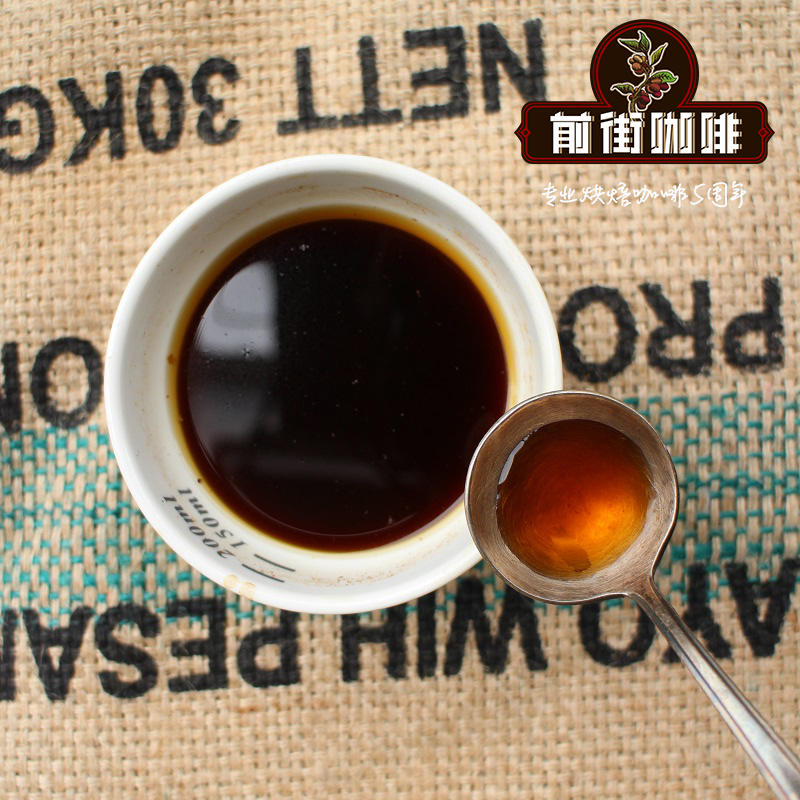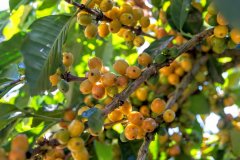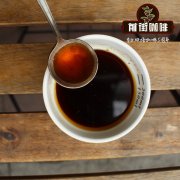Introduction of Yemeni Coffee producing area Haraaz description of taste and aroma of Yemeni coffee beans

Professional coffee knowledge exchange more coffee bean information please follow the coffee workshop (Wechat official account cafe_style)
In fact, Yemen is located on the Arabian Peninsula of the Asian continent, but it is very close to Africa as long as it crosses the Red Sea and the Gulf of Aden Gulf of Aden, but other Arab countries do not produce coffee, so the world classifies Yemeni coffee as a member of the North African coffee family. So what is the Yemeni mocha? Mocha is the export port of Yemeni coffee, because it is difficult to name all the tiny sub-producing areas in the history of the coffee trade, even though the coffee produced by these small producing areas is indeed very good. So the sun beans near the place of export, including East Africa, were exported from the port of Mocha to all parts of the world in the early days, and now the port of Mocha has long been silted up and disappeared. Many Ethiopian sun beans also name themselves mocha, such as Haramoka, which we know well. I think this is because its flavor has something in common with Yemeni coffee.
The most correct spelling of mocha coffee should be Al-Mahka, which is the Arabic spelling, but in the end, what you see on the sack is the correct spelling of Mocca or Mocha, regardless of some naming and spelling trivialities, Yemeni coffee is the most unique and expensive coffee in the world, the overall style of [wild] or [natural] coffee flavor is extremely complex, for some people it is spicy and pungent. But in any case, you must try it sometime. Among the top Yemeni coffees bought from Direct Coffee, you will find that you like this unique coffee very much, and if you also fall in love with him, it will be the beginning of a whole new coffee journey.
Yemen is probably the first country in the world to use coffee as a cash crop. It is said that coffee was introduced by Muslim Sufi pilgrims from Ethiopia in the 6th century. Yemeni coffee culture is different from other regions. Exporters do not buy directly from the farm, but from the middle market dealers, and the coffee received by the local market merchants contains pods. The whole dried coffee cherry is usually stored in the cellar, and the special flavor of the world's favorite Yemeni coffee may come from their ancient way of trade. Yemeni coffee farmers have not suffered from trading through the market. The main reason is that the local coffee cultivation land is limited, coupled with high latitudes and limited water resources, its production is very scarce, and the demand for Yemeni coffee is very high. Keep the price of Yemeni coffee high.
It is not easy to grow coffee in Yemen. Most farmland grows Qat grass, which is said to have a mild and refreshing effect. This plant absorbs water from the ground and breaks the underground aquifer. Growing coffee is not the same as hoping that some changes can be made to stop farmers from growing cat grass. But Qat's profit is tens of times that of coffee, and coffee beans can only be persuaded by the government to keep a small area under Qat. Maybe this also gives you a lot of room to imagine.
The total number of coffee farms is about
330000
Harvest time
Major crops from October to December, second harvest in April
Number of people engaged in coffee
1530000
Refining method /
Grading
Naturally dried Arabian beans; no regulatory body, no grading system
Planting shading mode
Planted in the wild, shaded but not documented, coffee is grown on terraces
Organic authentication
No certification: all coffee is grown organically according to the ancient method, and pesticides containing chemicals are not used.
Major coffee producing areas
Mattari Matali, Hirazi Hilazi, Haimi Haimi, Saihi Saehi, Ismaili Yishi Mary, Sharasi Salazi, Dhamari Damali, Rimy Remy
Output ranking
Asia 10th
World No. 46
Tree species
More than 10 special native mocha species were introduced from Ethiopia
The introduction of coffee
Introduced in the 6th century or earlier by the Hara region of Ethiopia, the native place of Arabica, Yemen is the first coffee country to start growing since Ethiopia.
Some people say it is the oldest tree species and others say it is the producing area. At the local market in Haraazi, Yemen, the suppliers of spices, tea, Qat katgrass and coffee say that his coffee beans are special because they are always mixed with very special flavor. Esimar Marie is in the incredible vertical steep boulder area, and coffee is planted side by side with Qat katgrass on etched terraces. She has always had a strong (spicy) personality, with a surprising aroma of red wine.
Property Characteristics: farm characteristics
Farmer Farm owner: Small Holders different small Farmers
Region producing area: Haraazi
Country countries: Yemen Yemen
Farm Size Farm area: 2.8Hectares ha
Altitude altitude: 1840 Murray 2125 meters
Certification certification: None none
Coffee Characteristics: coffee characteristics
Variety varieties: Jaa'di, Taffahi, and Dawairi
Processing System treatment: Red ripe cherries dried on raised beds sun drying
Appearance appearance: 15muri 16 eyes
Top Jury Descriptions judge's comment: the baking degree measured by the cup for 60 seconds at the beginning of the first explosion (Cinnamon)
Aroma aroma / flavor flavor: strawberry, pineapple, grape, cinnamon, clove, red wine, maple syrup, caramel
Acid quality: tannic acid, tartaric acid, soda water
Complex complexity and other other: unrestrained fruit wine, full-bodied taste, chocolate finish, high-profile spice aromas
Important Notice :
前街咖啡 FrontStreet Coffee has moved to new addredd:
FrontStreet Coffee Address: 315,Donghua East Road,GuangZhou
Tel:020 38364473
- Prev

The variety of Huang Kaduai is rare and excellent, and it has a charming elegant demeanor with rich levels of change. You can drink it any way you like.
Professional coffee knowledge exchange more coffee bean information please follow the coffee workshop (Wechat official account cafe_style) Eincht Manor Huang Kaduai washing treatment Vivette South Fruit region El Injerto, Yellow Catuai, Washed Process, Huehuetenango Manor History Eincht Manor has been a pioneer of boutique coffee in Central America. About 50 years ago.
- Next

Flavor characteristics of Honduran Coffee
You may have heard of the Honduran Blue Hole and the famous Mayan civilization, but you may feel strange about the fragrance of Honduran coffee. Today, let's get to know the Honduran coffee bar and talk about the coffee in Central America. You may immediately think of these coffee producing countries such as Guatemala, Costa Rica and Panama. But in Central America, El Salvador,
Related
- Does Rose Summer choose Blue, Green or Red? Detailed explanation of Rose Summer Coffee plots and Classification in Panamanian Jade Manor
- What is the difference between the origin, producing area, processing plant, cooperative and manor of coffee beans?
- How fine does the espresso powder fit? how to grind the espresso?
- Sca coffee roasting degree color card coffee roasting degree 8 roasting color values what do you mean?
- The practice of lattes: how to make lattes at home
- Introduction to Indonesian Fine Coffee beans-- Java Coffee producing area of Indonesian Arabica Coffee
- How much will the flavor of light and medium roasted rose summer be expressed? What baking level is rose summer suitable for?
- Introduction to the characteristics of washing, sun-drying or wet-planing coffee commonly used in Mantenin, Indonesia
- Price characteristics of Arabica Coffee Bean Starbucks introduction to Manning Coffee Bean Taste producing area Variety Manor
- What is the authentic Yega flavor? What are the flavor characteristics of the really excellent Yejasuffi coffee beans?

